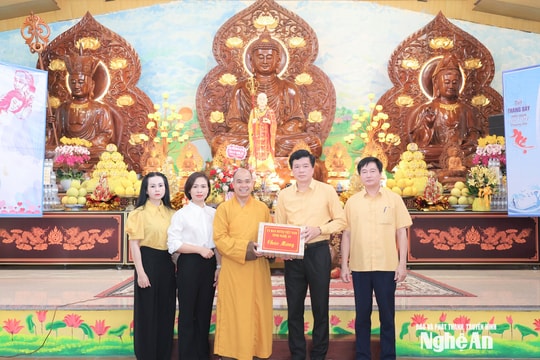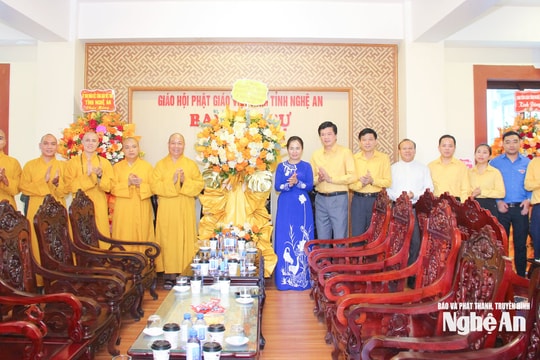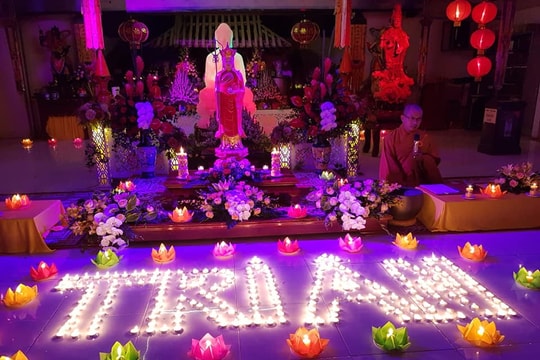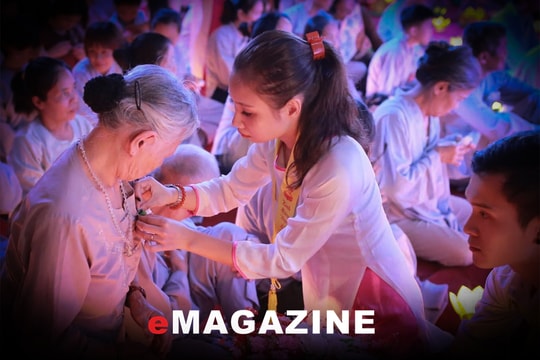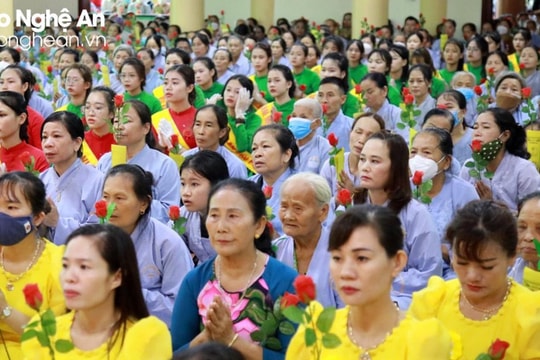'Don't confuse Vu Lan festival with All Souls Day'
Every year, on the occasion of the seventh lunar month, Vu Lan festival, children show their filial piety to their parents. However, many people often confuse Vu Lan festival with All Souls Day.
Origin of Vu Lan festival
From a cultural research perspective, researcher Trinh Sinh said that Vietnamese people often make offerings on the 15th day of the seventh lunar month ("Forgiveness for the dead" or "ghost month") so that ghosts can be liberated.
Vu Lan festival is a good custom in Buddhist culture. He emphasized: "These two days are completely different in meaning, do not confuse Vu Lan festival with the day of forgiveness for the dead".
Accordingly, Vu Lan festival originates from the story of Bodhisattva Maudgalyayana saving his mother. Maudgalyayana was one of the ten great disciples of Buddha, whose mother was Thanh De.
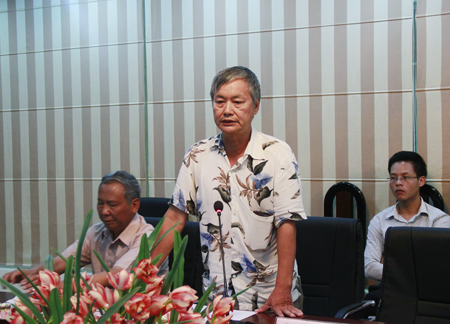 |
| Cultural researcher Trinh Sinh (Photo: provided by the character). |
Legend has it that during her lifetime, the mother of Bodhisattva Maudgalyayana committed many evil deeds and offended the monks, so when she died, she was banished to hell as a hungry ghost.
Bodhisattva Maudgalyayana tried to save his mother but could not. The Buddha showed him how to make offerings to the Sangha on the Full Moon of the seventh lunar month and thanks to the blessings of the numerous Sangha from all directions, he was able to save his mother from the suffering and torture in hell.
Following the Buddha's words, Maudgalyayana's mother was liberated. The Buddha also taught that all living beings who want to show filial piety to their parents should follow this method (Vu Lan Bon Phap). From then on, the Vu Lan festival was born.
Accordingly, every July, Buddhists hold ceremonies and offer gifts to the Triple Gem to pray for their grandparents and parents to be liberated. This is a way to show filial piety to deceased family members.
The meaning of Vu Lan festival
According to cultural researcher Trinh Sinh, Vu Lan is not only a day for Buddhists, it is also a season of gratitude and filial piety for all children to their parents who gave birth to and raised them. In addition, this is also an occasion for people to return to their roots.
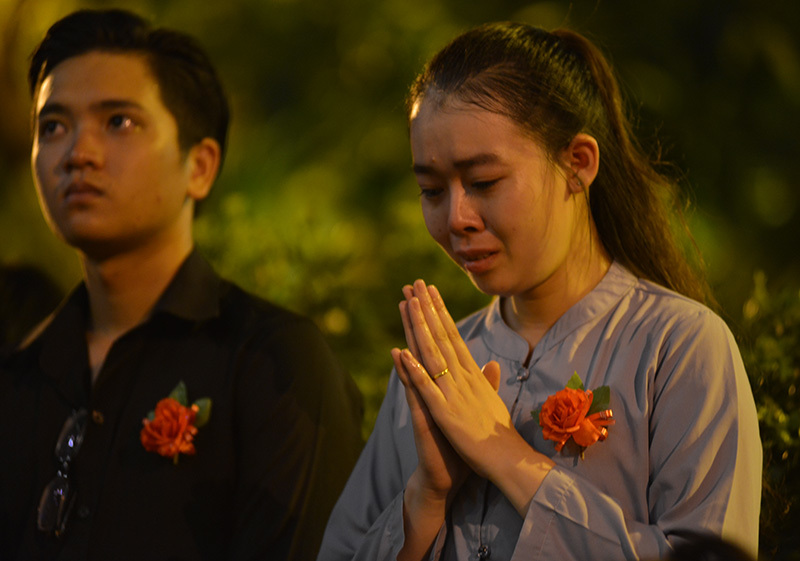 |
| On Vu Lan festival, those who still have parents wear red flowers, those whose parents have passed away wear red flowers. then put white flowers. Photo: Vietnamnet |
According to Buddhist teachings, there are many different ways to show gratitude to one's parents.
On this day, Buddhists often make offerings, pray for the dead, give alms, and release animals to accumulate blessings and pray for peace, to increase their parents' blessings and longevity, and to resolve bad karma...
On Vu Lan festival, each person usually pins a rose on their shirt: red for those whose mother is still alive and white for those whose mother has passed away.
Those who are lucky enough to wear a red rose on their chest are reminded to try their best to be obedient, respectful, and polite to their parents. Those who wear a white rose will see it as a reminder to never forget their parents' kindness, and to maintain family harmony.
The custom of wearing red and white roses on Vu Lan was initiated by Zen Master Thich Nhat Hanh in the 60s of the last century to add cultural significance to this festival, especially for children to remember their parents whether they have passed away or not.
According to VNN
| RELATED NEWS |
|---|

